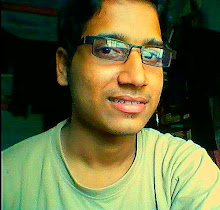Rabindranath Tagore ,was born into
a prominent Calcutta jorasakor thakurbari family known for its
socio-religious and cultural innovations during the 19th Bengal Renaissance. The
profound social and cultural involvement of his family would later play a strong
role in the formulation of Rabindranath’s educational priorities.
His grandfather Dwarkanath was involved in supporting medical facilities,
educational institutions and the arts, and he fought for religious and social
reform and the establishment of a free press. His father was also a leader
in social and religious reform, who encouraged a multi-cultural exchange in the
family mansion Jorasanko. Within the joint family, Rabindranath’s thirteen
brothers and sisters were mathematicians, journalists, novelists, musicians,
artists. His cousins, who shared the family mansion, were leaders in
theatre, science and a new art movement.
The tremendous excitement and cultural richness of his extended family
permitted young Rabindranath to absorb and learn subconsciously at his own pace,
giving him a dynamic open model of education, which he later tried to recreate
in his school at Santiniketan. Not surprisingly, he found his outside
formal schooling to be inferior and boring and, after a brief exposure to
several schools, he refused to attend school. The only degrees he ever received
were honorary ones bestowed late in life.His experiences at Jorasanko provided him with a lifelong
conviction concerning the importance of freedom in education. He also
realized in a profound manner the importance of the arts for developing
empathy and sensitivity, and the necessity for an intimate relationship with
one’s cultural and natural environment. In participating in the cosmopolitan
activities of the family, he came to reject narrowness in general, and in
particular, any form of narrowness that separated human being from human being.
He saw education as a vehicle for appreciating the richest aspects of other
cultures, while maintaining one’s own cultural specificity. As he wrote
I was brought up in an atmosphere
of aspiration, aspiration for the expansion of the human spirit. We in our
home sought freedom of power in our language, freedom of imagination in our
literature, freedom of soul in our religious creeds and that of mind in our
social environment. Such an opportunity has given me confidence in the
power of education which is one with life and only which can give us real
freedom, the highest that is claimed for man, his freedom of moral communion in
the human world.... I try to assert in my words and works that education has its
only meaning and object in freedom–freedom from ignorance about the laws of the
universe, and freedom from passion and prejudice in our communication with the
human world. In my institution I have attempted to create an atmosphere of
naturalness in our relationship with strangers, and the spirit of hospitality
which is the first virtue in men that made civilization possible.I invited thinkers and scholars from foreign lands to
let our boys know how easy it is to realise our common fellowship, when we deal
with those who are great, and that it is the puny who with their petty vanities
set up barriers between man and man.As well as growing up in a household that was the meeting place for leading
artists and intellectuals from India and the West, Rabindranath had a further
experience which was unusual for someone of his upbringing. In the 1890s,
he was put in charge of the family's rural properties in East Bengal. His first
experiments in adult education were carried out there as he gradually became
aware of the acute material and cultural poverty that permeated the villages, as
well as the great divide between the uneducated rural areas and the city elites.
His experiences made him determined to do something about rural uplift, and
later at Santiniketan, students and teachers were involved with literacy
training and social work and the promotion of cooperative schemes. As an
alternative to the existing forms of education, he started a small school at
Santiniketan in 1901 that developed into a university and rural reconstruction
centre, where he tried to develop an alternative model of education that stemmed
from his own learning experiences.
Rabindranath composed his first poem at age eight, and by
the end of his life, had written over twenty-five volumes of poetry, fifteen
plays, ninety short stories, eleven novels, thirteen volumes of essays,
initiated and edited various journals, prepared Bengali textbooks, kept up a
correspondence involving thousands of letters, composed over two thousand songs;
and - after the age of seventy
- created more than two thousand pictures and sketches.
He dedicated forty years of his life to his educational institution at
Santiniketan, West Bengal. Rabindranath’s school contained a children’s
school as well as a university known as Visva-Bharati and a rural education
Centre known as Sriniketan.







0 comments :
Post a Comment